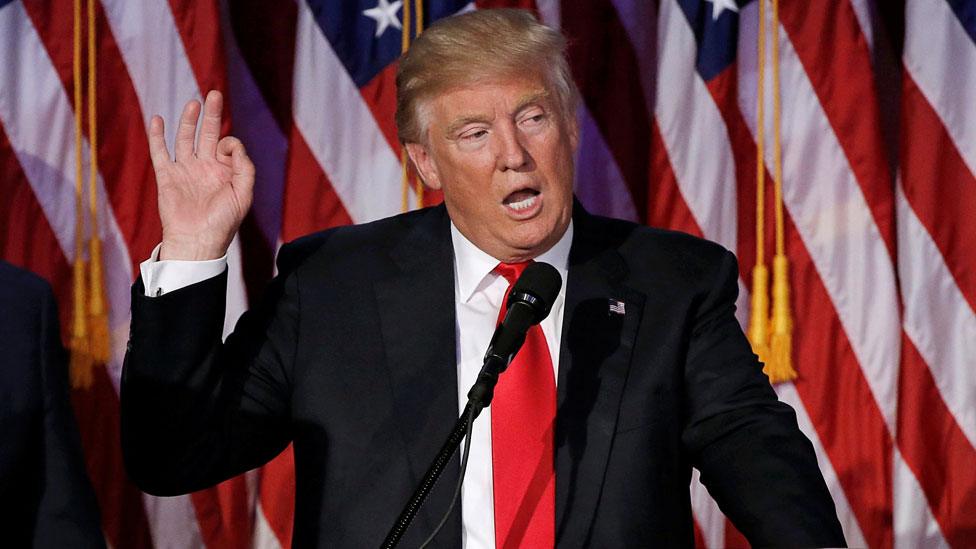

Donald Trump, a savvy businessman and a “grey rhino”, now has the United States governance trifecta in his hands.
Trump’s stance on Africa, during his first presidency ( 2017-2021 ) was marked with institutionalised indifference and euphoric ignorance, which begs the question: Is Trump 2.0 an ill omen or a blessing?
Propelled by a MAGA movement and ultra-hawkish republicans, fuelled by McCarthyism and navigated by a kooky blueprint (Project 2025 ) crafted by the Heritage Foundation, there is palpable angst Trump 2.0 is Groundhog Day.
But this is an ostensible effect and there are reasons to be optimistic.
Heritage Foundation publishes Mandate for Leadership: The Conservative Promise, a comprehensive policy guide for an incoming conservative president, every four years.
Trump received his copy of the 2016 edition during his first term, and according to Edwin J. Feulner, he implemented 64 per cent of its policy recommendations within one year, a rate higher than 1981 Reagan’s 60 per cent.
The current 922 pages edition was launched in April 2022.
Although Trump distanced himself from it while on the campaign trail, the denial is nothing more than a “Sister Souljah Moment”.
Circumstantial evidence suggests Trump is privy to it and has a personal bond with its sponsor and authors.
Surprisingly, Project 2025 is candid and provides excellent policy guidelines for sub-Saharan Africa. It correctly states that “Africa’s importance to US foreign policy and strategic interests is rising and will only continue to grow”.
Then it points out that “the US’s relative influence there has declined,” while US’s competitors are making significant gains for their own national interests.
The manifesto concurs with Agenda 2063 in that Africa’s global importance is driven by “explosive population growth, large reserves of industry-dependent minerals, proximity to key maritime shipping routes, and its collective diplomatic power.”
There are five proposed policies to correct current US’s strategic policy failure, of which three are pertinent.
The first is to shift strategic focus from assistance to growth, driven by the rationale that “Development aid alone does little to develop countries and can fuel corruption and violent conflict.”
Second is building a coalition of the cooperative.
This entails focusing on those countries with which the US can expect a mutually beneficial relationship while maintaining a baseline level of contact with the rest.
Finally, Trump’s administration should focus on core diplomatic activities, and do away with promotion of policies birthed in the American culture wars.
It rightly confirms “African nations are particularly (and reasonably) non-receptive to the US social policies such as abortion and pro-LGBT initiatives being imposed on them.”
Now, the elephant in the room, which from an African perspective is a red line, is the policy to “Counter malign Chinese activity on the continent”.
This is broken into two parts. The first is “the recognition of Somaliland statehood as a hedge against the US’s deteriorating position in Djibouti”.
This is colonialism and it’s not acceptable. The other part is Africa-China relations.
While China might be an enemy of the US, it is not an enemy of Africa, and Africans don’t want to be dragged into hegemonic or cold war drills and simulations.
China provides more support to Africa than the US.
According to a recent report by CGTN, key milestones of China- Africa cooperation under China’s Belt and Road Initiative include renovation of more than 10,000km of railways, nearly 100,000km of highways, close to 1,000 bridges, nearly 100 ports, 66,000km of power transmission and transformation lines and 150,000km of backbone communication networks across the continent.
This year, China had implemented zero tariffs on 98 per cent of products originating from 27 of Africa’s least developed countries.
This is happening when the US Congress under Trump and Biden, has not re-authorised the Generalised System of Preferences since December 31, 2020.
In addition, the Africa Growth and Opportunity Act expires in September 2025 and we don’t know its fate.
Lastly, in 2023, China-Africa trade volume was a record $282.1 billion, compared to US’s $67.5 billion.
The Forum on China-Africa Cooperation, Beijing Action Plan ( 2025-27 ) released during the ninth Summit held in September 2024 (US has held only 2 summits: Obama ( 2014 ), Biden ( 2022 ) reveals a vibrant and dynamic relations.
“The Africa We Want”, is now guided by Agenda 2063’s, Second Ten-Year Implementation Plan ( 2024 – 2033 ), dubbed Decade of Accelerated Implementation.
This is the only primary basis upon which all global strategic partnerships-ongoing and new are to be framed.
There are seven clear moonshots such that any external relationship which does not lead to the achievement of these milestones should be discarded.
Trump should steer away from his first term hawkish and unrealistic policies fixated on US primacy, and zero-sum competition, and embrace, a mutually beneficial Africa-US partnership.
Then Trump 2.0 will be a blessing for Africa.












